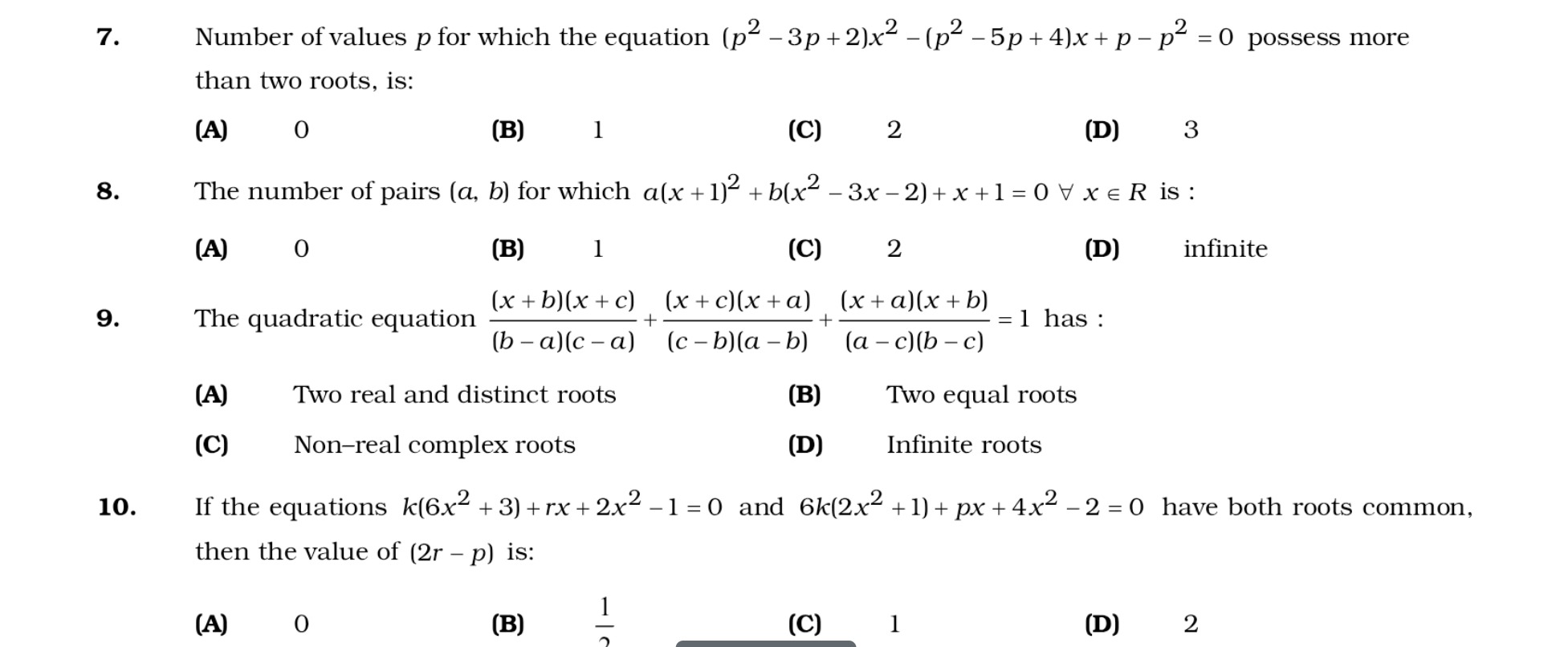Question
Question: Number of values $p$ for which the equation $(p^2-3p+2)x^2-(p^2-5p+4)x+p-p^2=0$ possess more than tw...
Number of values p for which the equation (p2−3p+2)x2−(p2−5p+4)x+p−p2=0 possess more than two roots, is:

0
1
2
3
1
Solution
A polynomial equation of degree n has at most n roots. For a quadratic equation (degree 2) to have more than two roots, it must be an identity, meaning it holds true for all values of x. This occurs when all the coefficients of the polynomial are zero.
Let the given equation be Ax2+Bx+C=0, where: A=p2−3p+2 B=−(p2−5p+4) C=p−p2
We need to find the values of p for which A=0, B=0, and C=0 simultaneously.
Factorize each coefficient:
-
A=p2−3p+2=(p−1)(p−2) For A=0, p=1 or p=2.
-
B=−(p2−5p+4)=−(p−1)(p−4) For B=0, p=1 or p=4.
-
C=p−p2=p(1−p)=−p(p−1) For C=0, p=0 or p=1.
For all three coefficients to be zero, p must be a common value in the solutions of A=0, B=0, and C=0. The common value is p=1.
When p=1: A=(1−1)(1−2)=0×(−1)=0 B=−(1−1)(1−4)=−0×(−3)=0 C=−1(1−1)=−1×0=0
Thus, for p=1, the equation becomes 0x2+0x+0=0, which is 0=0. This equation is true for all real numbers x, meaning it has infinitely many roots. The question asks for the number of values of p for which this condition holds. We found only one such value, p=1.
